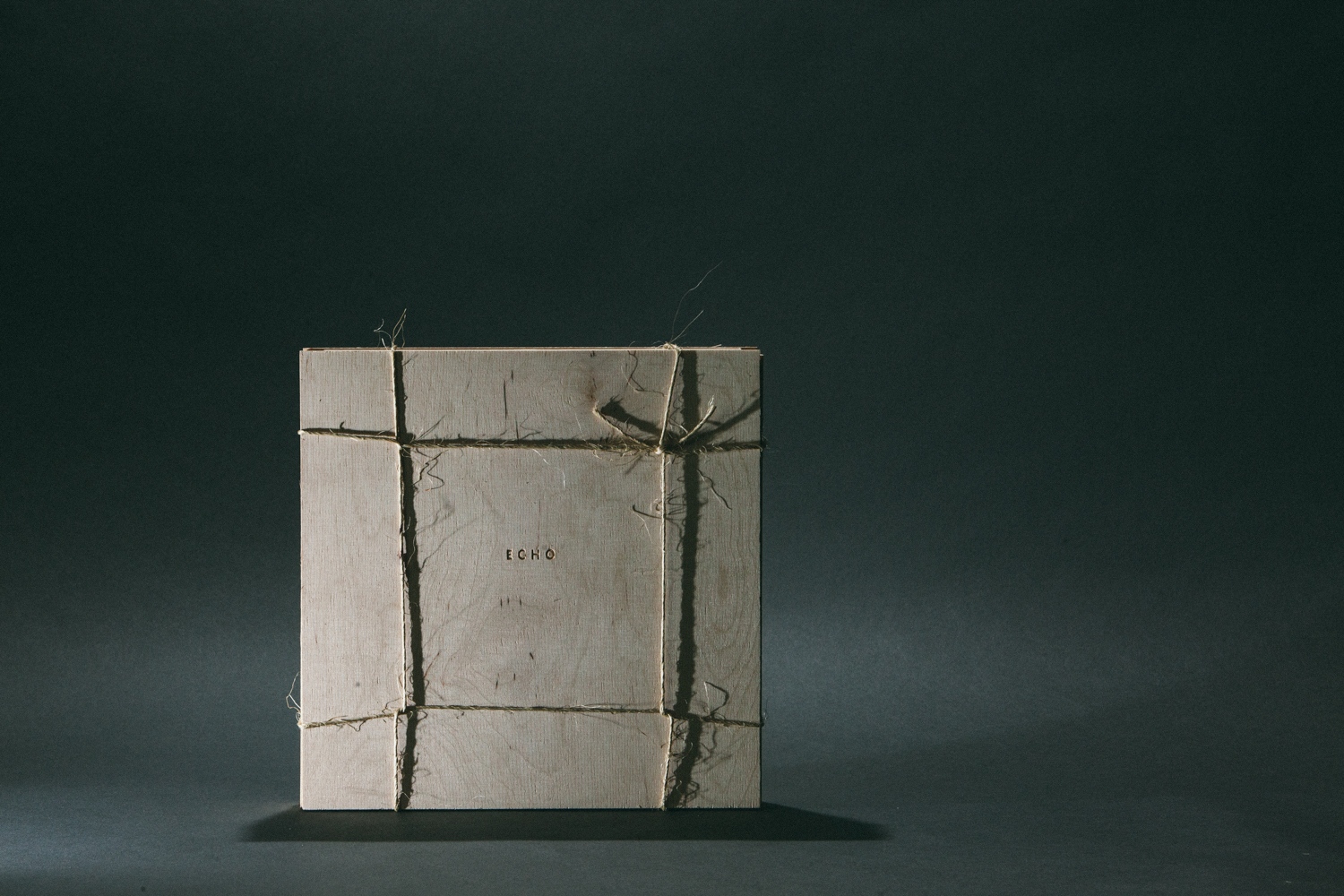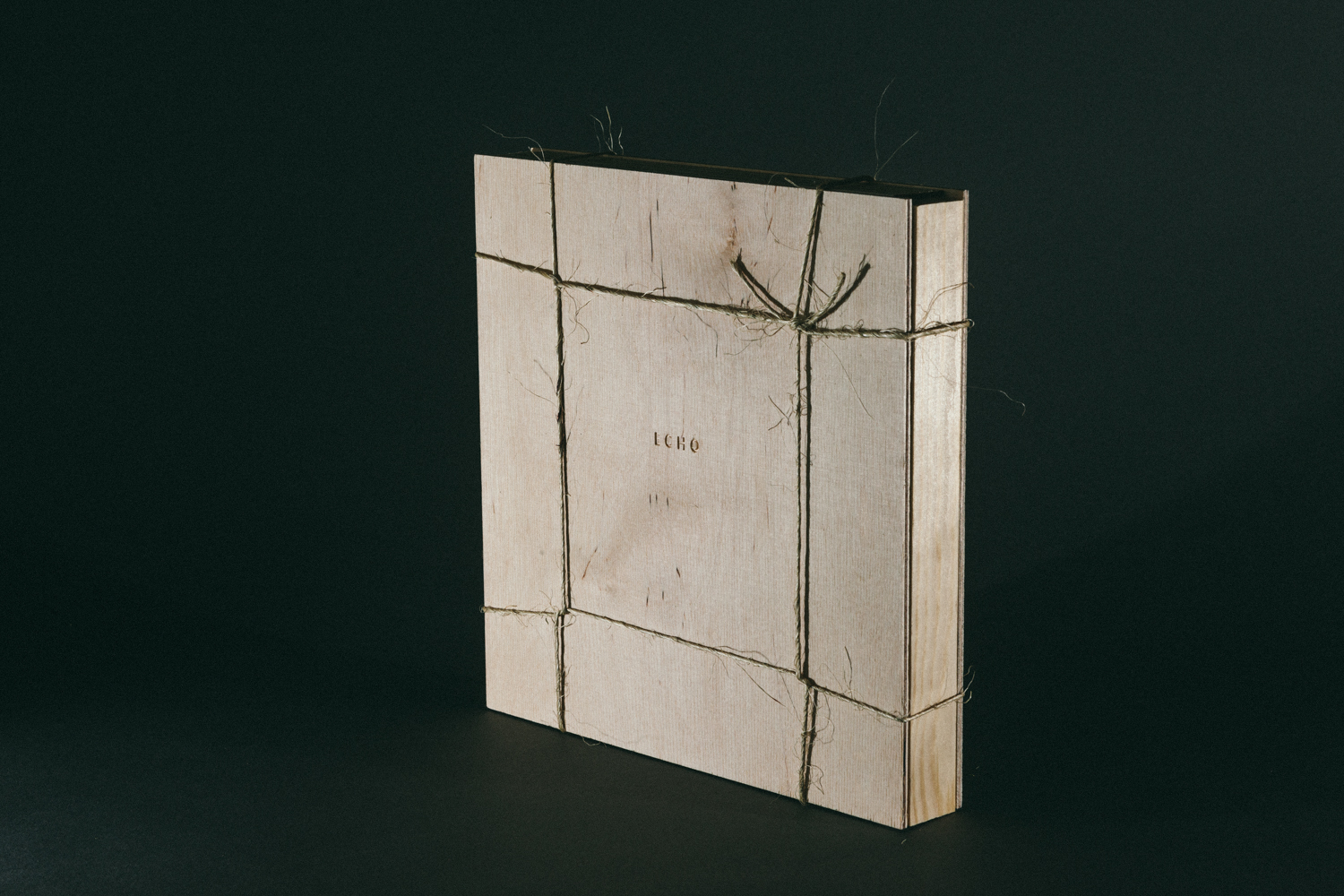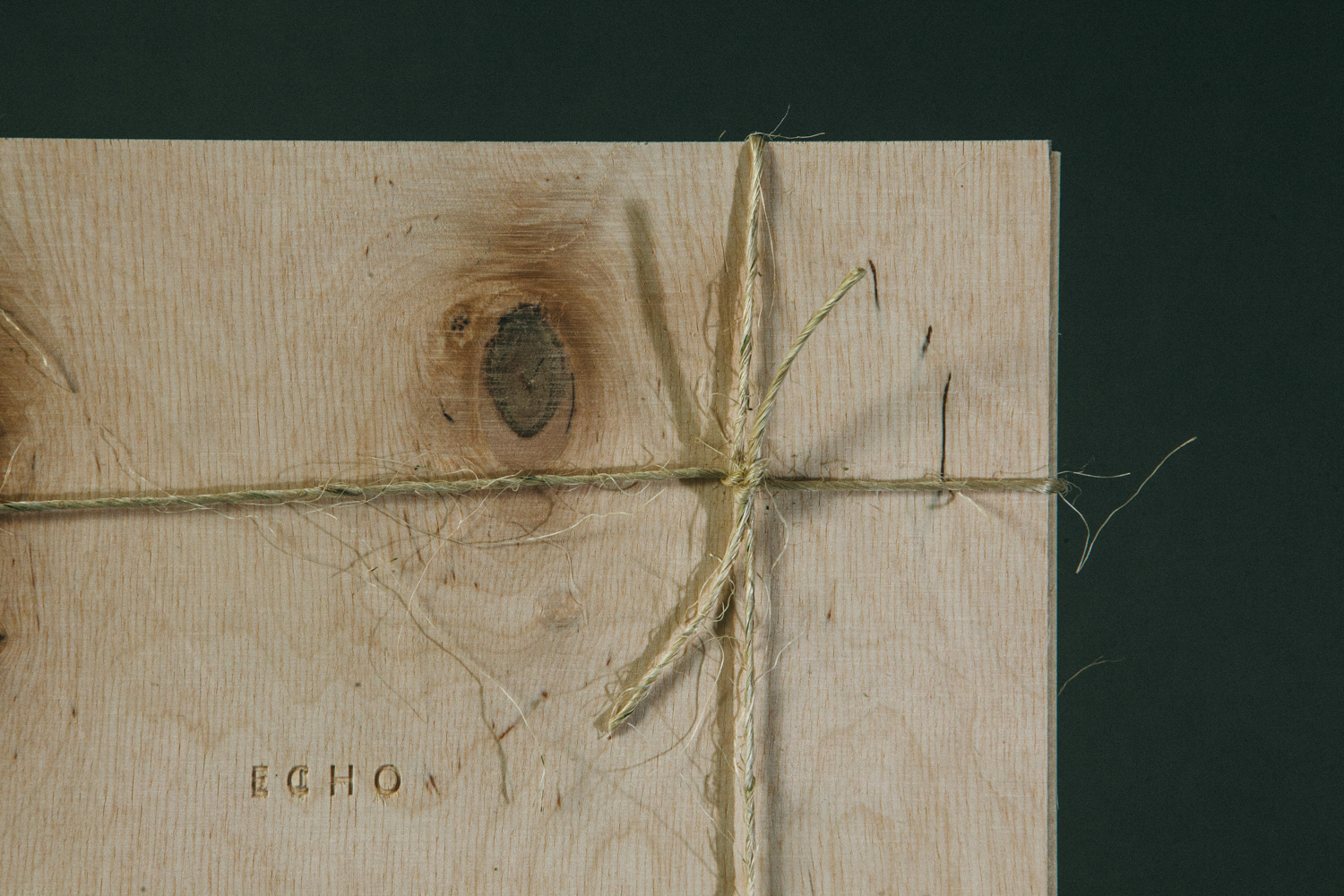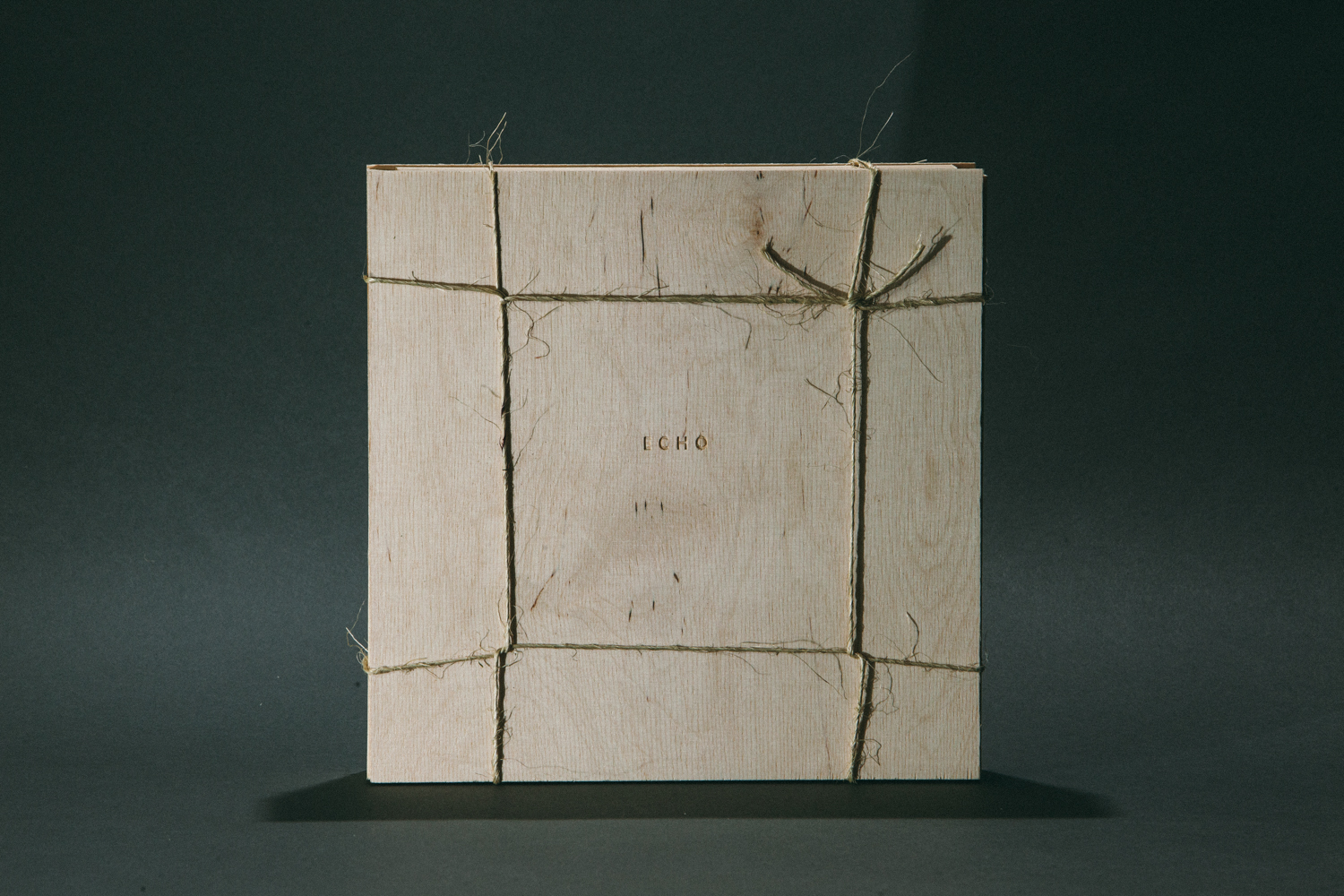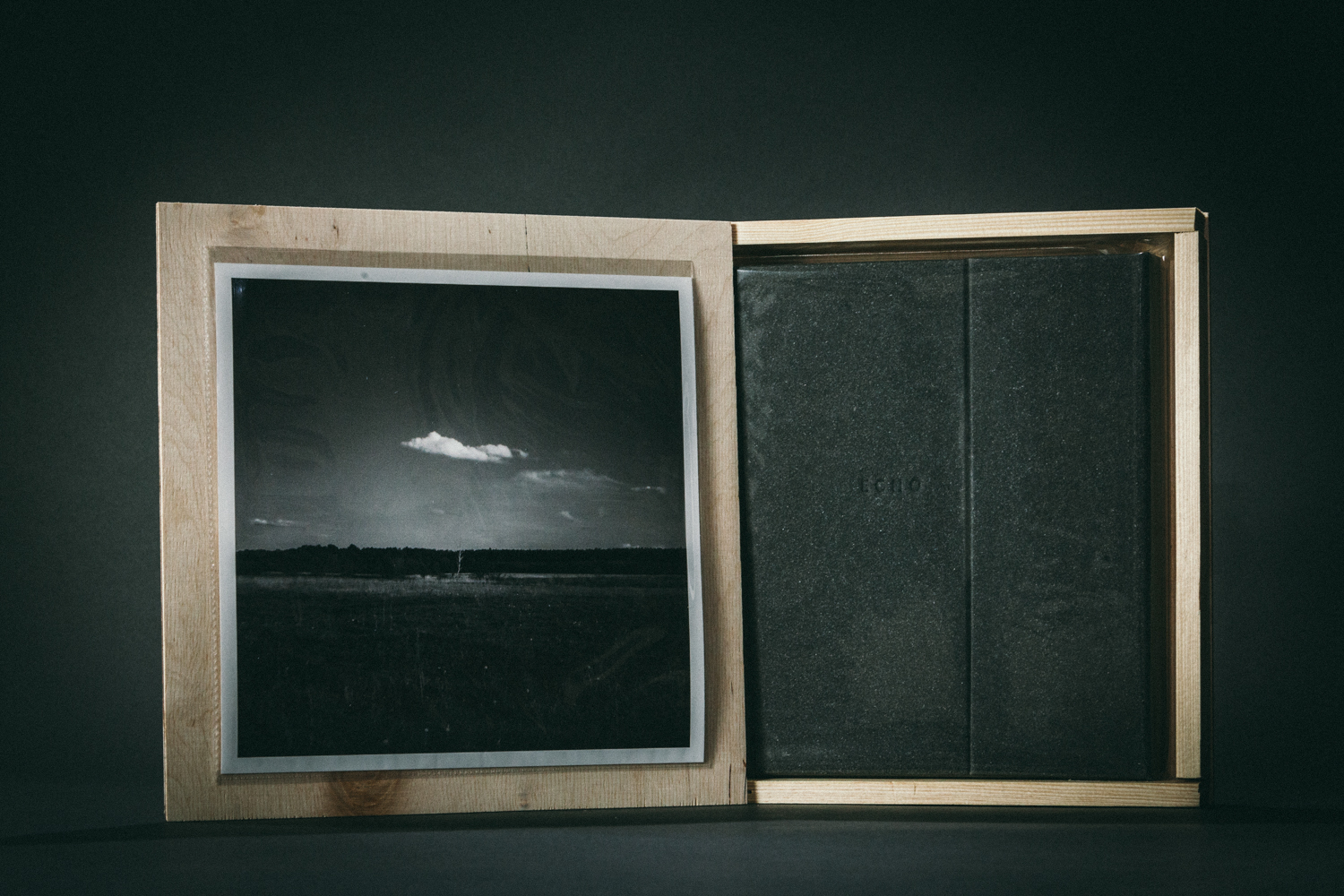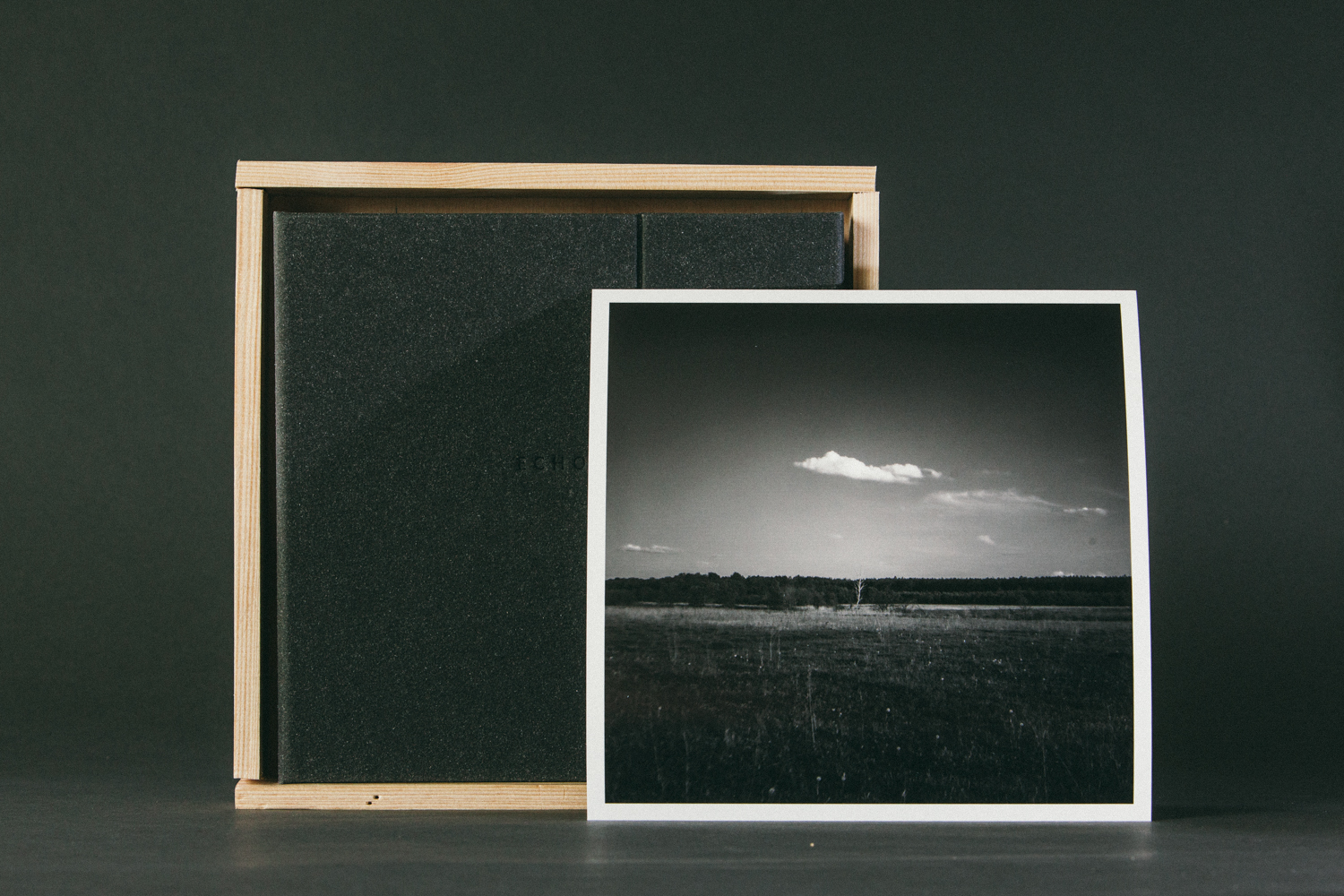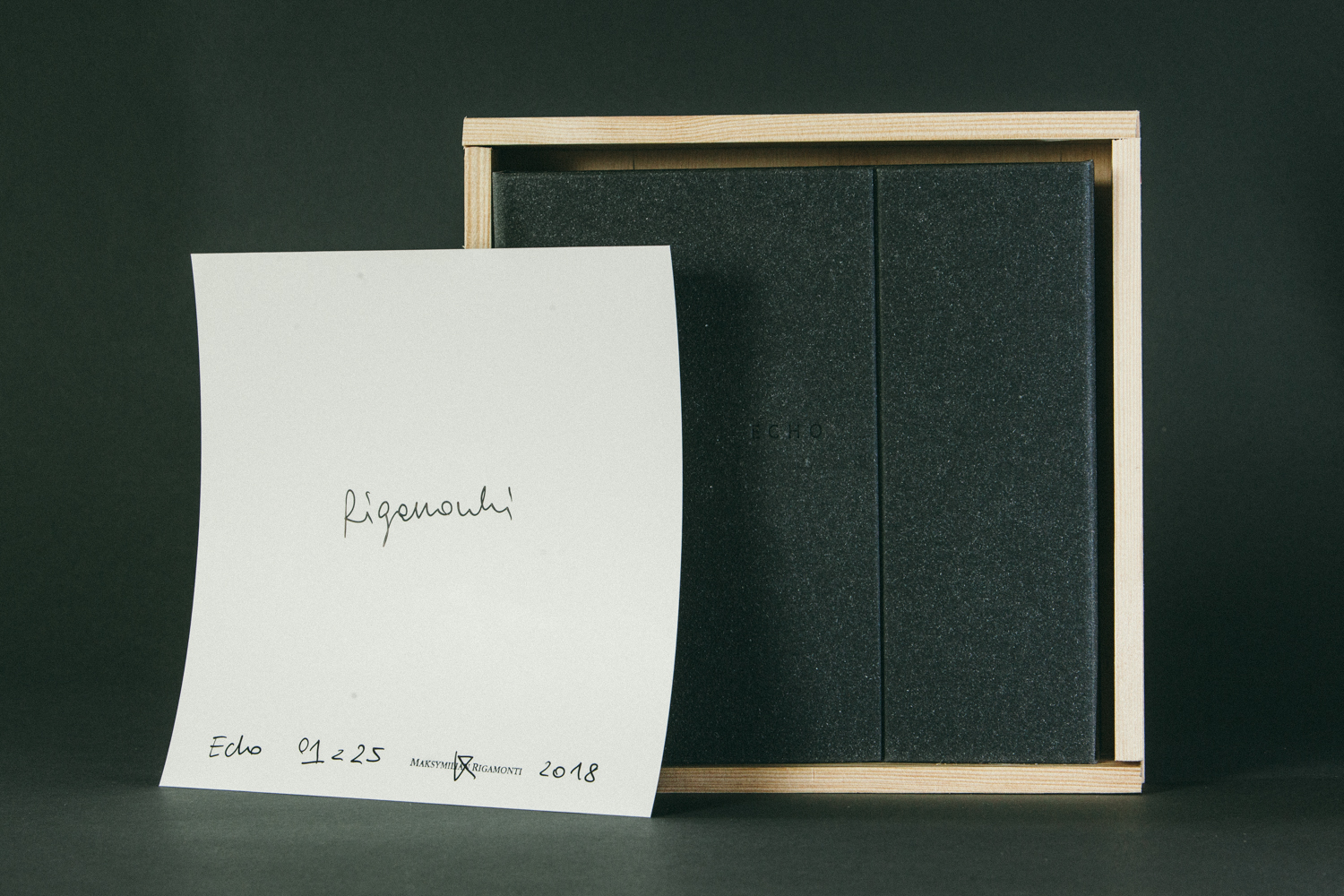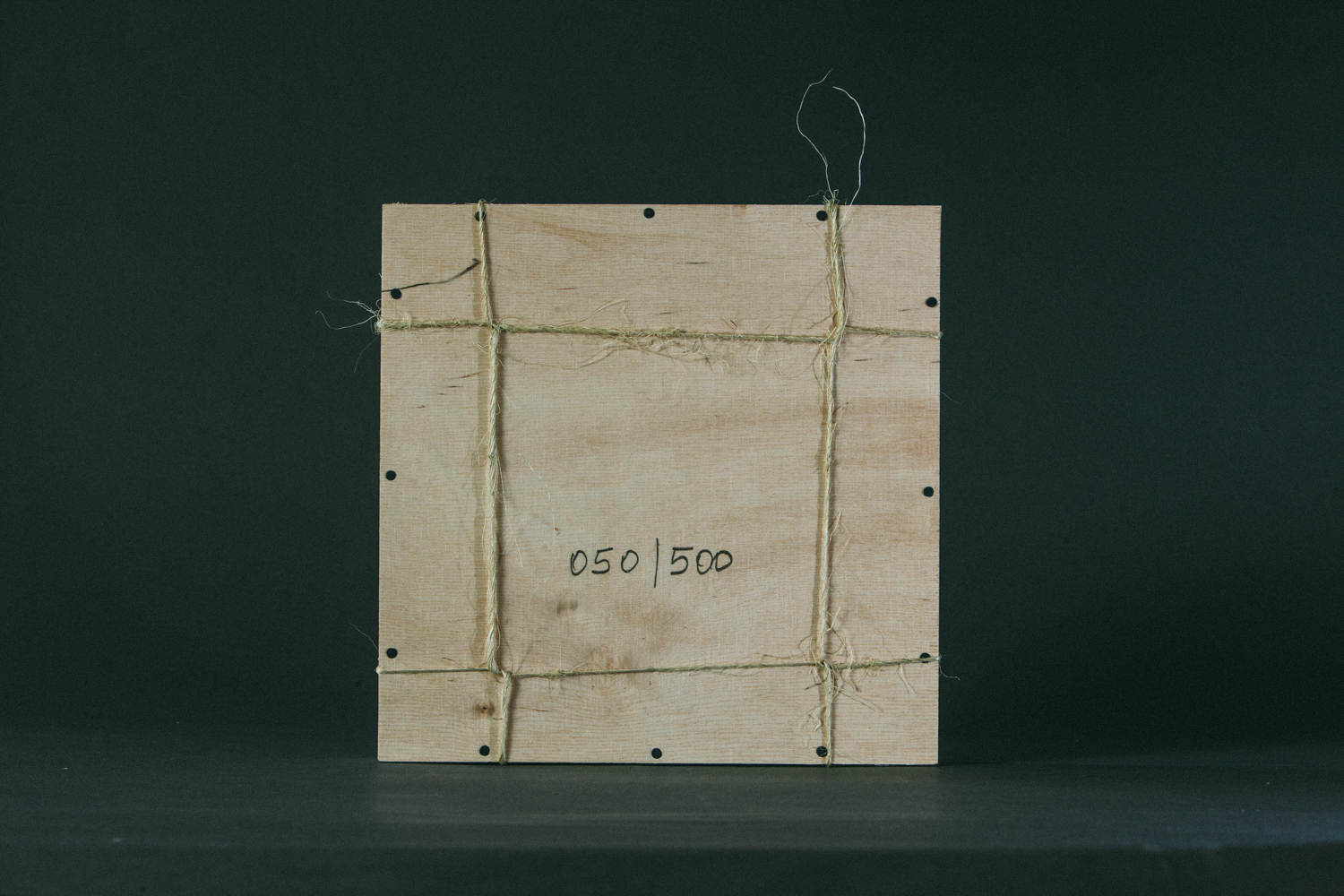Echo Collector's Edition
Echo Collector's Edition
Collector’s Edition of Echo
POY Photography Book of the Year 2018
The Photo Book of the Year 2018 in Grand Press Photo
25 signed copies of the book Echo in wooden case with signed and numbered collector’s prints on archive paper bound with a rope.
Copyright: Maksymilian Rigamonti
Title: The Echo
Publisher: Press Club Polska
Photography: Maksymilian Rigamonti
Text: Magdalena Rigamonti
Design: Kasia Kubicka
Photography editor: Ewa Meissner
Scanning and preparation: Tomasz Kubaczyk
Text editors: Katarzyna Sielicka, Ireneusz Broda
Language: Polish, English
Translation: Adam Robiński
Proofreading: Iwona Maciszewska
Binding: Poligrafia Bracia Szymańscy
Print: Chromapress
Size: 21 x 21 cm
Pages: 70 (60 + 12)
48 black and white photographs
Collector’s edition: 25 copies
Numbered and signed
Date of issue: March 2018
ISBN: 978-83-65971-00-5
1st issue
I travel to places that do not exist. I meet people without a future, living in the past. I visited many places in western Ukraine, in Volhynia. Today, there are only empty space of the former Polish villages and towns. Almost all they disappeared in the year 1943. They can be found on old maps, trying to track them down with GPS. In early spring, when snow melts it can be seen, where there were houses. Material is only emptiness and the echo of the past. Boundless landscapes, sincere fields and only here and there someone placed a cross. Historians document and collect testimony about Volhynia Massacre, they created a historical development, which rely almost exclusively on human memory, because the material certificates basically does not exist. I'm looking for what does not exist, and I'm trying to tell the story about Volhynia, the land contaminated by death.
Jeżdżę do miejsc, których nie ma. Spotykam ludzi bez przyszłości, żyjących przeszłością. Dziś tam, na Wołyniu są tylko puste miejsca po dawnych polskich osadach i wsiach. Prawie wszystkie zniknęły w 1943 roku. Można je znaleźć na starych mapach, próbować namierzać GPS-em. Tam materialna jest tylko pustka. I ja tę pustkę fotografuję. Bezbrzeżne krajobrazy, szczere pola i tylko gdzieniegdzie ktoś postawił krzyżyk. Tu była szkoła, w tamtej wsi mieszkało dwa tysiące ludzi, tam kościół, tu z okolicznych wsi co środa zjeżdżali na targ, a tam był urząd gminy. Nie ma nic. Tylko przyroda. A w okolicach ukraińskie wsie. Fotografuję analogowym aparatem średnioformatowym. Szukam tego, czego nie ma i próbuję opowiadać historię Wołynia, krainy skażonej śmiercią.







